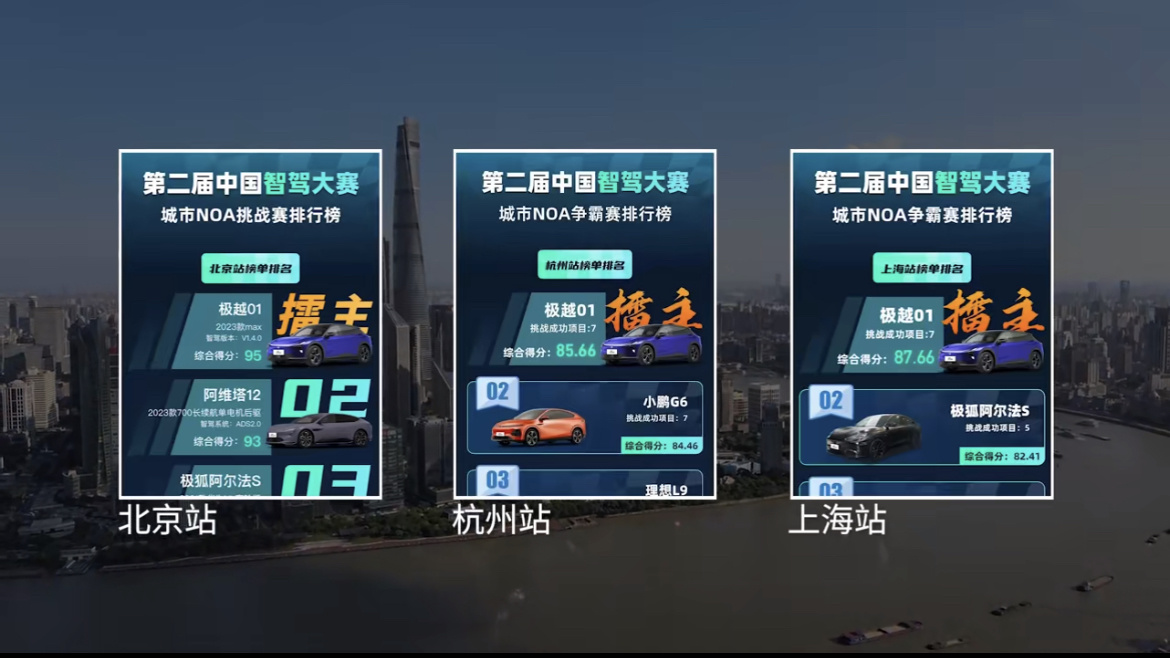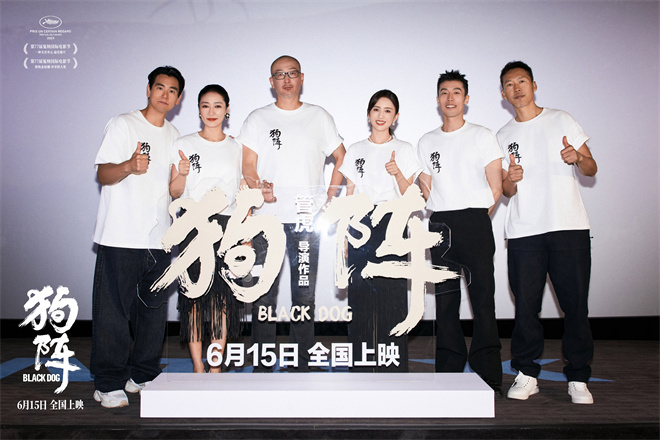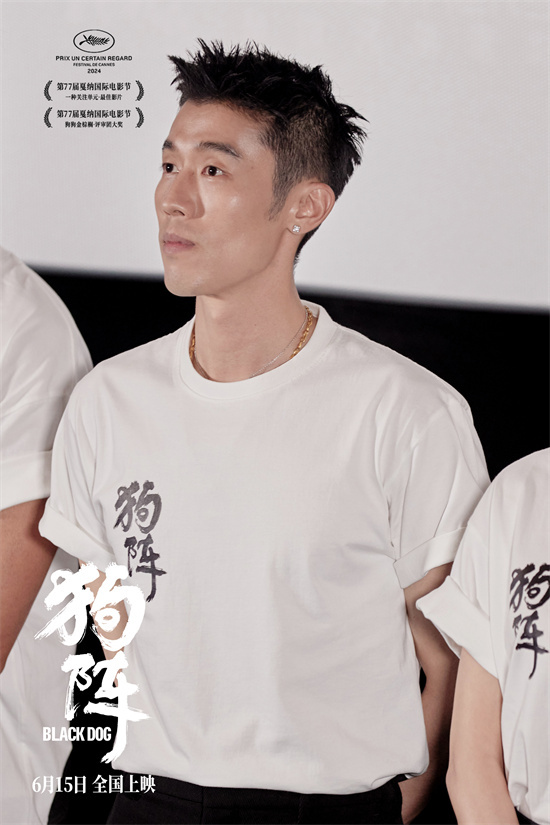
Lu Han & Shu Qi Interview with Sina Entertainment

Lu Han and Shu Qi (Wang Bo/Photo)

Lu Han and Shu Qi were interviewed by Sina Entertainment

Luhan
Green overalls, a green and white plaid casual suit, and a green T-shirt inside. Lu Han appeared in the interview room as an avocado teenager.
Before the interview began, everyone happily talked about booking the venue to watch "Shanghai Fortress". Many friends around him were already ready to book the venue, but Lu Han smiled shyly: "I won’t pack it myself!" Of course, this would be "complained" by the staff: "You are the male lead, how can you not pack it!"
At the beginning of the interview, the staff noticed that the collar of Luhan’s T-shirt was a little crooked and wanted to help him tidy it up. Shu Qi next to him took a look and said, "This is the style." Luhan also smiled and said, "Don’t touch me, you took my style away!"
A small episode, it seems that the aesthetic and tacit understanding of Shu Qi and Lu Han’s brother and sister CP is quite good. Using Shu Qi’s words to describe, "I almost feel that the two of us were born from the same mother, I thought we were born of dragon and phoenix."
The age difference between the two in "Shanghai Fortress" was a constant cue on the premiere day. When Shu Qi walked out of the interview room, she smiled and said, "Ah, don’t mention the numbers anymore," but sorry, Xiaolang still "made up for it."
It was not intentional to mention that Lu Han was almost 30 years old, but because the first interview Lu Han gave after returning to China in 2014 was done by Xiaolang. At that time, Lu Han and the reporter were only 24 years old. He did not expect that the second meeting would be five years later, and it was inevitable that he would feel emotional. Sister Shu Qi answered first: "I have gone to five!" Lu Han said that it feels very good to become mature now, and of course I hope that time can be slower.
Lu Han and Shu Qi (Wang Bo/Photo)
When Luhan Meets Muse Shu Qi
"Lively, cute, generous, beautiful and perfect"
Sina Entertainment: What were your first impressions of each other? What was the first time you met?
Shu Qi: Where did we first meet? I’ve forgotten.
Luhan: At the filming location.
Shu Qi: Really?
Luhan: Well, I have the impression that because of my Muse, I thought Muse should be cold at first, but later I found that it is actually very lively and cute, which makes the atmosphere of the scene very interesting.
Shu Qi: I know I want to cooperate with him. In fact, I am very afraid, because I am very afraid of our differences in certain aspects and the differences in the times. Does this feel better? Then I watched that "Run Away Brother" and thought wow, this kid is cool, but when I look at the photos or watch some of his dramas, I don’t think he belongs to a person who runs like this and is so smart. I told him, how is Lu Han so smart? Because when you watch him, you will think he is a beautiful man, he seems to be very quiet, and then when you watch that variety show, you think it is too fun, I want to play with him.
Sina Entertainment: Has Sister Shu Qi heard Luhan’s songs or watched his stage?
Shu Qi: Yes, I am at the forefront of the times.
Sina Entertainment: Lu Han said that Sister Shu Qi is your Muse. What movies do you like about her?
Luhan: I have seen all her movies.
Sina Entertainment: Sister Shu Qi tested him on the spot.
Luhan: But "Shanghai Fortress" is the best. No, no, just kidding, the most anticipated is "Shanghai Fortress".
Sina Entertainment: What do you most appreciate about Muse?
Shu Qi: He just said it, cute, lively and generous.
Luhan: Beautiful. Perfect.
Sina Entertainment: Did the two of you watch the original book after taking over the roles? In fact, the difference between the two characters in the original book is only one year.
Shu Qi (pretending to be angry): Now is it? How old do you think we are now?
Sina Entertainment: No, no.
Luhan: We are the same age, yes.
Sina Entertainment: How do you understand the relationship between these two characters?
Luhan: It won’t be much different from the original, because the screenwriter is also a teacher in Jiangnan.
Shu Qi: She’s just talking about numbers.
Luhan: Ah!
Shu Qi: This is a bit sensitive, but I don’t mind it.
Luhan: Very good, yes. I think they are all very Jiang Yang and Lin Lan.
Shu Qi: The most important thing is a role problem, because Lin Lan himself is an officer, and Jiang Yang just joined the gray eagle team, and he is still a soldier. So the gap between the two people is already very big.
Luhan: The class gap is quite large, and she is my leader.
Shu Qi: Yes, I think there will be more emotional depictions in the novel, a little more. Then in the movie, this part will be transformed into another one. Because after all, it is still mainly based on science fiction actions, so the emotional aspect will be more restrained.
Sina Entertainment: In fact, in the novel, their two emotional lines are quite clear. In the end, Lin Lan left a plane ticket for Jiang Yang. Many people think it was a missed love, but the handling in the play may be rather hazy. Do you think the two people in the play are true love?
Shu Qi: I think it’s my sister’s feeling for my brother. Because I regard him as a very promising child, I feel that if there are still some people in Shanghai who can save the earth, it must be a powerful person, a person like Jiang Yang.
Sina Entertainment: When the two of you acted, how did you feel about CP between you?
Luhan: I think it’s pretty good.
Shu Qi: I almost felt that the two were born from the same mother. I thought we were both twins.
Lu Han and Shu Qi were interviewed by Sina Entertainment
S********kes "Guardians of the Galaxy" Tree Man Groot
Luhan’s most memorable "Shanghai Fortress" "Shoot at me"
Sina Entertainment: When the two of you took on "Shanghai Fortress", science fiction had no particularly successful precedent in China. So I wonder why you were so brave to act in a science fiction film at that time?
Shu Qi (referring to Luhan): Because there are such actors.
Luhan: Because of Sister Shu Qi.
Shu Qi: The most important thing is that when Director Hua Tao himself was preparing this story, he actually prepared for a very long time, and then he wanted to find someone like me who is more familiar and does not need special teaching, and then he said whatever he said, a very good actor. So okay, then I’ll be fine, and I’ll participate in this movie.
Luhan: Me too. Because after all, it’s the first time that Chinese people make their own sci-fi movies, so I have to come just for this. And Sister Shu Qi is also there, and Director Teng is also there.
Shu Qi: Yes, I think this kind of big IP movie seemed to be in the mainland at that time, although later there was "Wandering Earth", I would find it very interesting and challenging.
Sina Entertainment: What was your favorite science fiction movie before? What is your vision of aliens?
Lu Han: I’m a boy, so I prefer it. Girls should be the same, right? Many people probably like watching science fiction movies. I don’t think it matters what an alien looks like, because he is an alien. There are all kinds of aliens in the fantasy, and there are long and fierce ones, according to their own fantasies.
Shu Qi: Yes, like the aliens in "Guardians of the Galaxy" is so cute, that tree man Groot. Then the feeling of being in the galaxy, I quite like that movie.
Sina Entertainment: If today is the end of the world, what will you two do?
Shu Qi: Hurry up and find my two cats.
Luhan: I’m home, I’m home now, at home.
Sina Entertainment: What are you doing at home?
Luhan: Lie down and wait for the end of the world.
Shu Qi: Look at which meteorite fell.
Luhan: Yes.
Sina Entertainment: So the last thing Sister Shu Qi thought about was two cats?
Shu Qi: Yes, I’m afraid they’re too lonely.
Sina Entertainment: In this drama, almost all of your looks are very handsome uniforms. Isn’t it cool to act in uniform?
Shu Qi: I’m so tired, I think being a soldier is actually quite tiring, because you have to be very upright, and in any state, I think it will naturally bring you an aura. Then I went home and took off my clothes. Alas, I’m actually quite tired, because I’ve been standing upright outside all day.
Luhan: I don’t even have a hunchback in this dress, because I think a hunchback will make me sorry for this uniform.
Sina Entertainment: What is your most memorable scene?
Luhan: I was the one who "fired at me". All my teammates died, and then all my loved ones and loved ones died. I feel that I stood up at that moment and sacrificed myself in order to save all mankind. I think this period is quite impressive.
Shu Qi: I was also at the last moment. In fact, when we shot all the blue sets, but when I was acting in that scene, I felt that everything appeared in front of you. I should have taken a lot of pictures, and I wanted to cry for each one.
Sina Entertainment: Did Lu Han feel like crying when he filmed "Shoot Me"?
Lu Han: I was crying, I was quite worried at first, this emotion is more complicated. That scene was filmed on the last day, so it’s just like the Gray Eagle Squad, I’m familiar with everyone, and then seeing everyone sacrifice one by one, that kind of feeling will be like what Sister Shu Qi said, and some pictures will come to my mind.
Sina Entertainment: What is the most challenging scene for you? For example, you need to use more experience in processing.
Shu Qi: Yes, really, it’s hard to act without experience. Fortunately, it’s a newcomer, hahaha. I think their younger generation is actually really good now. They have more contact with mobile games, electric toys, and other things, so they will also have an immersive feeling on the drone shelf. I am used to it because I have shot a lot of blue sets and green sets, so I am very used to it. But your imagination space is very large, because after all, everything is empty. You really need to seriously immerse yourself in a sci-fi world. This is a very fun thing. I feel like a madman, and then sit in an empty place, and then there "Quick, the enemy is coming".
Luhan: Left and right, come left, come left, go right first.
Shu Qi: Fortunately, they are all people from the film industry. If a passerby suddenly passes by, he thinks that Lu Han and Shu Qi should take medicine.
Luhan
Luhan Quick Q & A Time
"I hope time will be slower in the future, not too fast"
Sina Entertainment: Will you participate in the music variety show?
Luhan: Yes, it depends on the time.
Sina Entertainment: Your music stage fans are waiting to be fed. When will the three rounds be held?
Luhan: Soon, soon, next year.
Sina Entertainment: Will next year’s work focus on music or film and television?
Luhan: Rest next year. No, just kidding. It depends on the situation next year, both sides are focused.
Sina Entertainment: Can "The Man in the Play" have an MV?
Luhan: If you have time.
Sina Entertainment: In fact, I did the first interview after Lu Han returned to China. At that time, neither of us were 25, but now we are almost 30. At this threshold, I am more emotional. I want to know how you feel?
Shu Qi: I would like to ask, have you considered my existence?
Sina Entertainment: Sister Shu Qi, you are very young.
Shu Qi: I’ve been running for five.
Luhan: In my thirties, I feel that time flies very fast.
Shu Qi: Cherish it.
Luhan: Cherish, yes. It’s very good to feel that you are gradually maturing after the end. I hope time will be slower in the future, not too fast, otherwise next time you should ask if you did this interview at the time of 30, and now it will be 40. What do you think? Yes, let time be too slow.
Shu Qi: Then next time you interview him again, you must not be interviewing, you should be your head.
Sina Entertainment: Cheng Shu Qi’s sister Ji Yan, I must put this paragraph in.
Luhan: Yes, you can.









 It was born under the vast architecture of Geely’s SEA, and it has the deep empowerment of Baidu Apollo’s autonomous driving ability. Especially in the second China Intelligent Driving Competition being held recently, Extreme Yue 01 not only won three consecutive championships in Beijing, Hangzhou and Shanghai! What is special is that the intelligent driving scheme used by Extreme Yue 01 is different from that used by domestic new energy brands at present. It is the only brand besides Tesla that relies on pure visual perception to realize NOA intelligent driving in urban areas. Not to mention the measured mileage of Baidu Apollo intelligent driving system has now exceeded 70 million kilometers, with zero accidents and safety.
It was born under the vast architecture of Geely’s SEA, and it has the deep empowerment of Baidu Apollo’s autonomous driving ability. Especially in the second China Intelligent Driving Competition being held recently, Extreme Yue 01 not only won three consecutive championships in Beijing, Hangzhou and Shanghai! What is special is that the intelligent driving scheme used by Extreme Yue 01 is different from that used by domestic new energy brands at present. It is the only brand besides Tesla that relies on pure visual perception to realize NOA intelligent driving in urban areas. Not to mention the measured mileage of Baidu Apollo intelligent driving system has now exceeded 70 million kilometers, with zero accidents and safety.


 In contrast, Krypton 001 has a more personalized style, and the strong cross-border style design is very popular among young consumers. Moreover, the listing time of Krypton 001 was earlier, the image of the main manipulation was deeply rooted in the hearts of the people, and the overall sense of luxury was more mature.
In contrast, Krypton 001 has a more personalized style, and the strong cross-border style design is very popular among young consumers. Moreover, the listing time of Krypton 001 was earlier, the image of the main manipulation was deeply rooted in the hearts of the people, and the overall sense of luxury was more mature. Let’s talk about Haobo HT, which is backed by a big factory like Jiyue 01 and originated from Guangzhou Automobile. Haobo HT looks more low-key and traditional in appearance, with water-drop headlights embedded on both sides of the closed front face, full and round lines on the side of the car, and penetrating design for the taillights.
Let’s talk about Haobo HT, which is backed by a big factory like Jiyue 01 and originated from Guangzhou Automobile. Haobo HT looks more low-key and traditional in appearance, with water-drop headlights embedded on both sides of the closed front face, full and round lines on the side of the car, and penetrating design for the taillights.








































